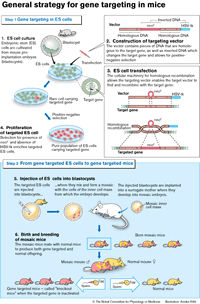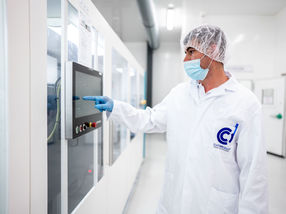Scientists Worry About Bush Stem Cell Policy
Some scientists warn that the United States may be left behind when it comes to important future medical advances because of the president's decision on stem cell research. Some of those scientists are planning to move abroad to perform research that is restricted under Bush's plan.
Dr. Roger Pedersen is one of America's leading scientists in the field of stem cell research. But next month he will leave for San Francisco and move to Cambridge University in England. The president's policy on stem cells, he says, will hold America back.
"In a way, it's as if President Kennedy had said, 'we're going to the moon' and then he added, 'we're only going to use existing rockets. We're not going to use any new ones.,'" said Pedersen. "You wouldn't expect astronauts to be terrifically excited about it."
Just the Start of Scientific Exodus
Many fear that Pedersen's departure may be just the beginning of a scientific exodus to countries with less stringent laws governing stem cell research such as Israel, Canada and Britain.
"Some important scientists have said even before this that they are going to go abroad," said Jonathan Moreno of the University of Virginia. "And some companies in the United States have already made arrangements with entities in places like the U.K. So, it's already happening."
For example, the U.S. Biotech company Geron now does much of its stem cell work in Scotland where public funding is generous and less restrictive.
In Britain, stem cell laws are extremely liberal. Embryos for research can be created or acquired from just about any source including cloning and they can be used as long as they are less than two weeks old. And now, the government is proposing to create a "stem cell bank" that would provide stem cells to any qualified scientist in Britain.
U.S. Standards Seen As Restrictive
Compare those standards to the U.S. where publicly-funded researchers are restricted to existing stem cell lines many of which may be unusable for certain kinds of research.
"What, for example, if it was found that the conditions that had been used so far to make human embryonic stem cell lines were not quite right — there was a problem with them," said Robin Lovell-Badge, of the British Medical Research Council. "Then the academics would be stuck."
Another concern to U.S. scientists is that private corporations now own many of the existing stem cell supplies. So, unlike England where new cells are widely available, in the U.S. cell supplies are limited so a few companies can exert tremendous control over federally-funded research.
"Either this policy will have to be revisited in a couple of years or the work will be carried out elsewhere," said Pedersen.
If that happens, scientists say, the U.S. could lose out on some of the most important future advances in modern medicine.
Other news from the department politics & laws

Get the chemical industry in your inbox
By submitting this form you agree that LUMITOS AG will send you the newsletter(s) selected above by email. Your data will not be passed on to third parties. Your data will be stored and processed in accordance with our data protection regulations. LUMITOS may contact you by email for the purpose of advertising or market and opinion surveys. You can revoke your consent at any time without giving reasons to LUMITOS AG, Ernst-Augustin-Str. 2, 12489 Berlin, Germany or by e-mail at revoke@lumitos.com with effect for the future. In addition, each email contains a link to unsubscribe from the corresponding newsletter.





























































